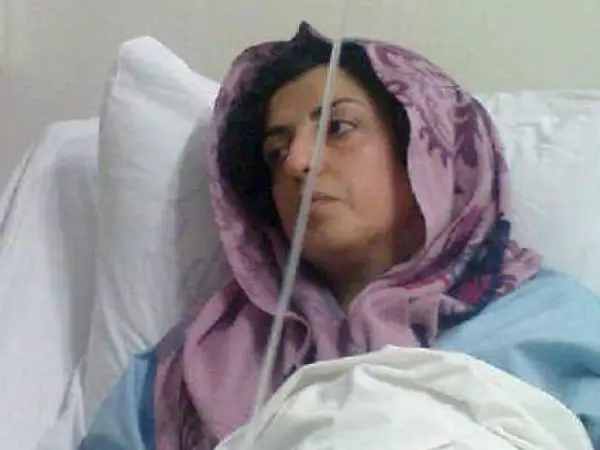Imprisoned civil and human rights activist Narges Mohammadi has released a harrowing account of what is happening inside the women's ward of Tehran’s notorious Evin prison.
In a document published on Thursday, she recounted details about women who have been suffering from tough sentences, long periods of time spent in solitary confinements, harsh interrogations, and framing the detainees for crimes they did not commit.
Mentioning the names of 58 out of 61 prisoners, she also shed light on the conditions that these women are being kept in, including their difficulties to access medical care and treatment.
The prominent activist described solitary confinement in wards controlled by the intelligence ministry and the Revolutionary Guard as “gross violations of human rights and acts of white torture,” saying that 57 out of 58 female prisoners have experienced "terrible inhumane tortures". Most of these women, especially those who have been in solitary confinement for a long time, suffer from complications and diseases caused by confinement in solitary cells.
This imprisoned human rights activist called solitary confinement in security cells among gross violations of human rights and acts of white torture. These women spent from several months to about two years in solitary confinement, some of without any human contact.
Maryam Haj-Hosseini spent 412 days in a solitary and was completely isolated and alone; Zahra Zahtabchi spent all her 14-months imprisonment in the cells of Ward 209 (that belongs to the Intelligence Ministry); and Maryam Mohammadi spent her 23 months of imprisonment in those cells in inhumane conditions, she said in her report.
She added that Niloufar Bayani spent nine months in solitary cells of Ward 209, while Sepideh Kashani, Zahra Safaei, Mahvash Shahriari, Fariba Kamalabadi each spent about eight months in those cells. According to her, dual nationals taken hostage, 68-year-old Nahid Taqavi and Fariba Adelkhah spent months in solitary confinement at Ward 209.
Mohammadi herself has been in solitary confinement for five months of her imprisonment.
She also provided a list of the sentences of these women and said most are facing very long-term incarceration, some of whom given up to 15 years behind bars.
In her list, Mohammadi also mentioned those who need medical care but are denied any treatment.
She also highlighted that dozens of political prisoners across Iran are not being kept in wards dedicated for prisoners of conscience and are kept among criminals.
Earlier in the month, the Swedish Olof Palme Foundation announced its 2023 award to three female activists, including Narges Mohammadi, for their efforts in the fight for women's freedom.
Mohammadi has been to jail several times over the past two decades. She was freed from Evin Prison in September 2020 after serving more than five years when she had no contact with her husband and children for long periods of time. She was arrested again and sentenced to eight years in jail and 70 lashes by the Revolutionary Court on trumped-up political charges again in a five-minute trial in late January 2022.
In another message from prison in June, Mohammadi called on right organizations to put pressure on the Islamic Republic for its crackdown on popular protests and said the international community should condemn the “killing of people on the streets” similar to pressure on Russia for its invasion of Ukraine.
